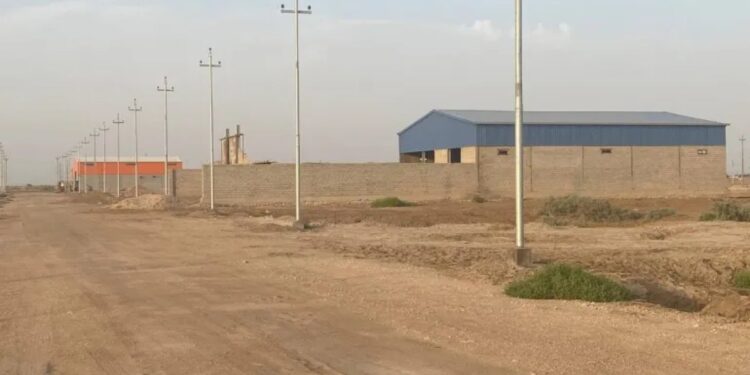Al Jazeera Net correspondents
Baghdad- Iraq is suffering from a sharp decline in the industrial sector, after the country enjoyed advanced heavy industries three decades ago. The reason for this is due to the political and economic events it has experienced, in addition to the corruption and neglect that afflicted the sector under successive governments.
According to statistics, small factories constitute approximately 90% of the total factories and laboratories, a percentage that reflects the weakness of Iraqi industry and the dominance of manufacturing industries rather than strategic and heavy industries.
The total number of factories affiliated with public sector companies in Iraq is about 227 factories, while the number of active factories is only 140, according to data from the Ministry of Industry and Minerals for the year 2022.
According to these data, about 18,167 industrial projects have stopped working for various reasons.
A member of the Federation of Iraqi Industries, Engineer Abdul Hassan Al-Ziyadi, says, “Iraq had very good heavy industries, and they had reached advanced stages of development, but after the fall of the previous regime in 2003, this industry was abandoned and the factories were neglected, which led to its significant deterioration.”
Al-Ziyadi added while speaking to Al-Jazeera Net, “The siege imposed on the previous regime tired the Iraqi industry, and after 2003 new governments came that did not have experience or knowledge of industry and agriculture, as most of them lived outside the country and had no knowledge of what Iraq manufactures or produces.” “.
Al-Ziyadi points out that “these rulers did not know the importance of these sectors. Rather, their interest was focused on corruption, through which they succeeded in paralyzing the country for 20 years without industry.”
He stressed that “there are signs of change in the current government headed by Muhammad Shiaa Al-Sudani, as it has adopted simple projects.”
Before and after 2003
In turn, economic expert Nabil Jabbar Al-Tamimi highlighted the challenges facing this industry and the opportunities available for its advancement, noting that in the period before 2003, Iraqi factories were divided into two main sectors: public and private.
Al-Tamimi explained during his speech to Al-Jazeera Net that public sector factories were suffering from a noticeable deterioration in production lines, as they began to collapse and become old, and the state was not able to modernize and restart them with high quality.
18,167 industrial projects have stopped working in Iraq
On the other hand, private sector factories witnessed varying performance, as some flourished, while many faced great difficulties.
He added, “After 2003, factories in both sectors witnessed a sharp deterioration. Public sector factories were subjected to looting, then neglect, and there were not sufficient financial allocations in the budget to ensure their success. As for private sector factories, they faced great challenges related to competition in the market, as their industries were not able to Competition with imported products, whether in terms of quality, quality or designs.”
He continued, “These conditions led to the decline of industrial activity in both sectors to its lowest levels, as these industries only contributed a percentage of no more than 1-2% of the gross domestic product.”
Al-Tamimi adds that in recent years, a kind of interest in the industrial sector in Iraq has begun to emerge, as some important laws have been activated, such as the Local Product Protection Law and the Consumer Protection Law, and taxes have been imposed on imported goods, in addition to preventing the import of some products, such as rebar and cement. Other materials are produced locally.
In addition, the Iraqi government began to encourage investment in some vital industrial sectors, such as the pharmaceutical industry, as real opportunities were available for investors – sponsored by the government – to produce a wide range of medicines. The Military Industries Authority also began to be open to concluding partnerships with the private sector and opening dozens of Laboratories and factories.
According to Al-Tamimi, what we are witnessing now are the first steps that we hope will continue at the same pace, stressing the importance of the government’s interest in the oil and petrochemical industries sector, given that Iraq has abundant oil resources, and it is necessary to develop these industries and make them a major driver of the Iraqi economy.



